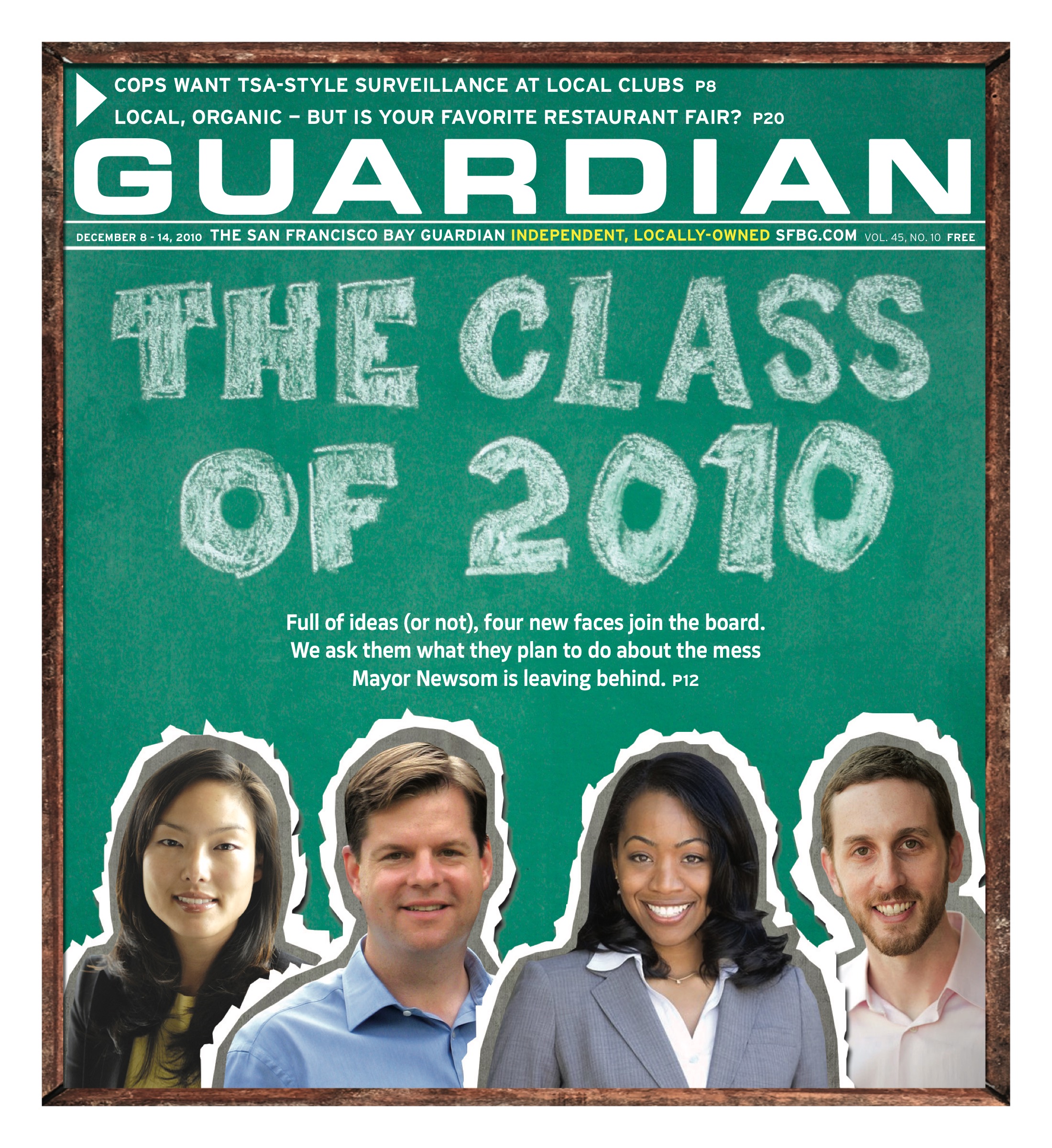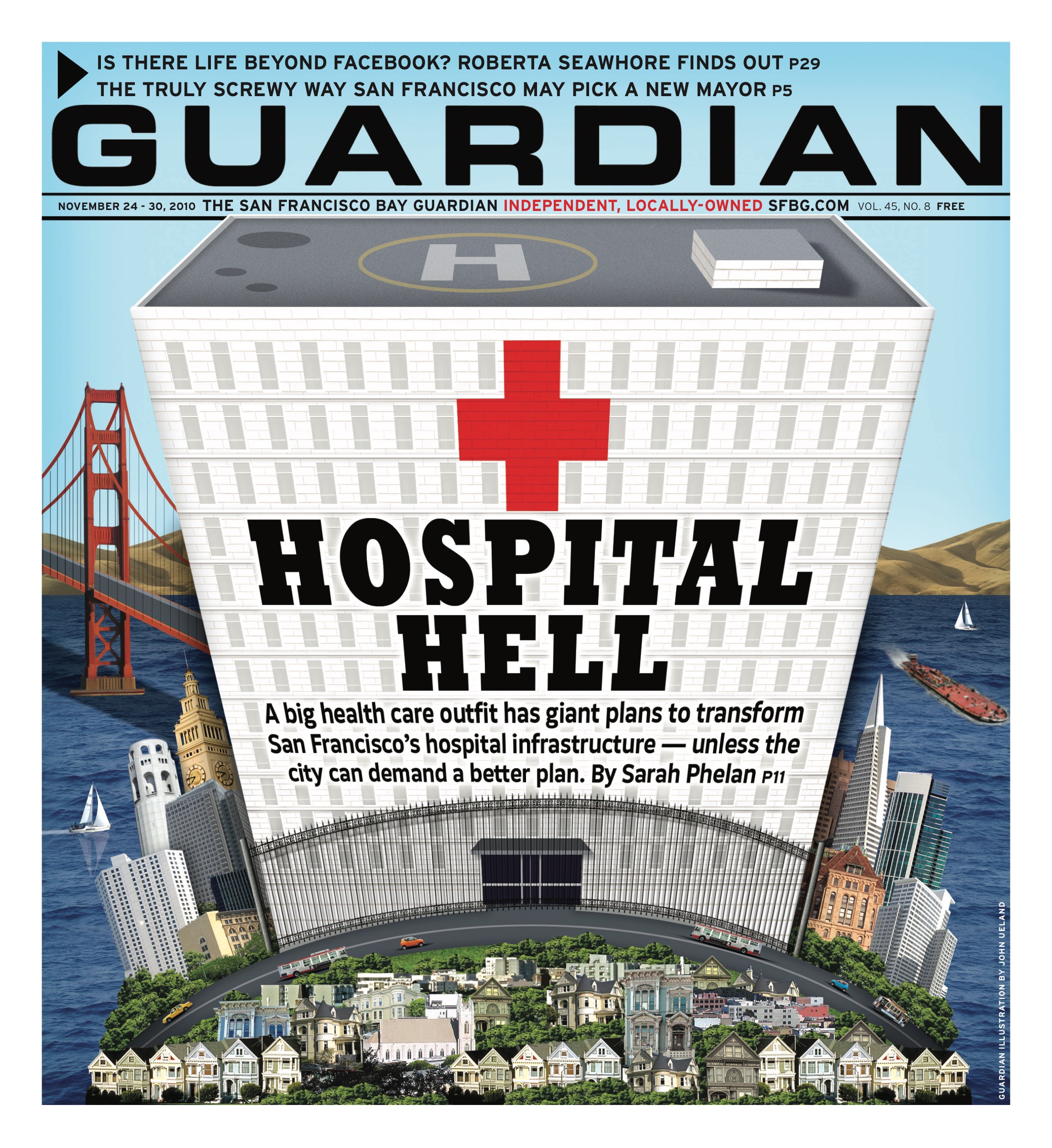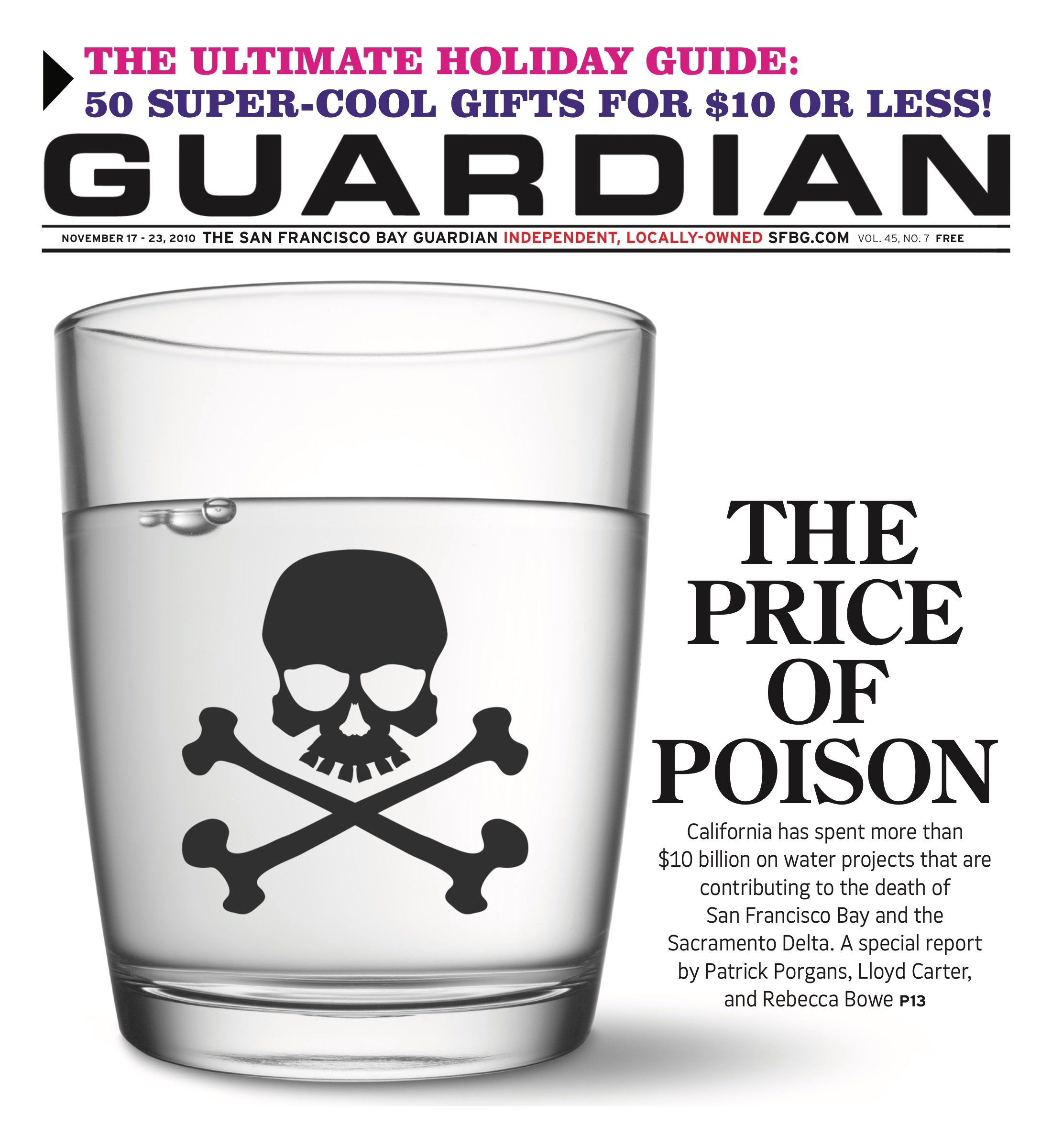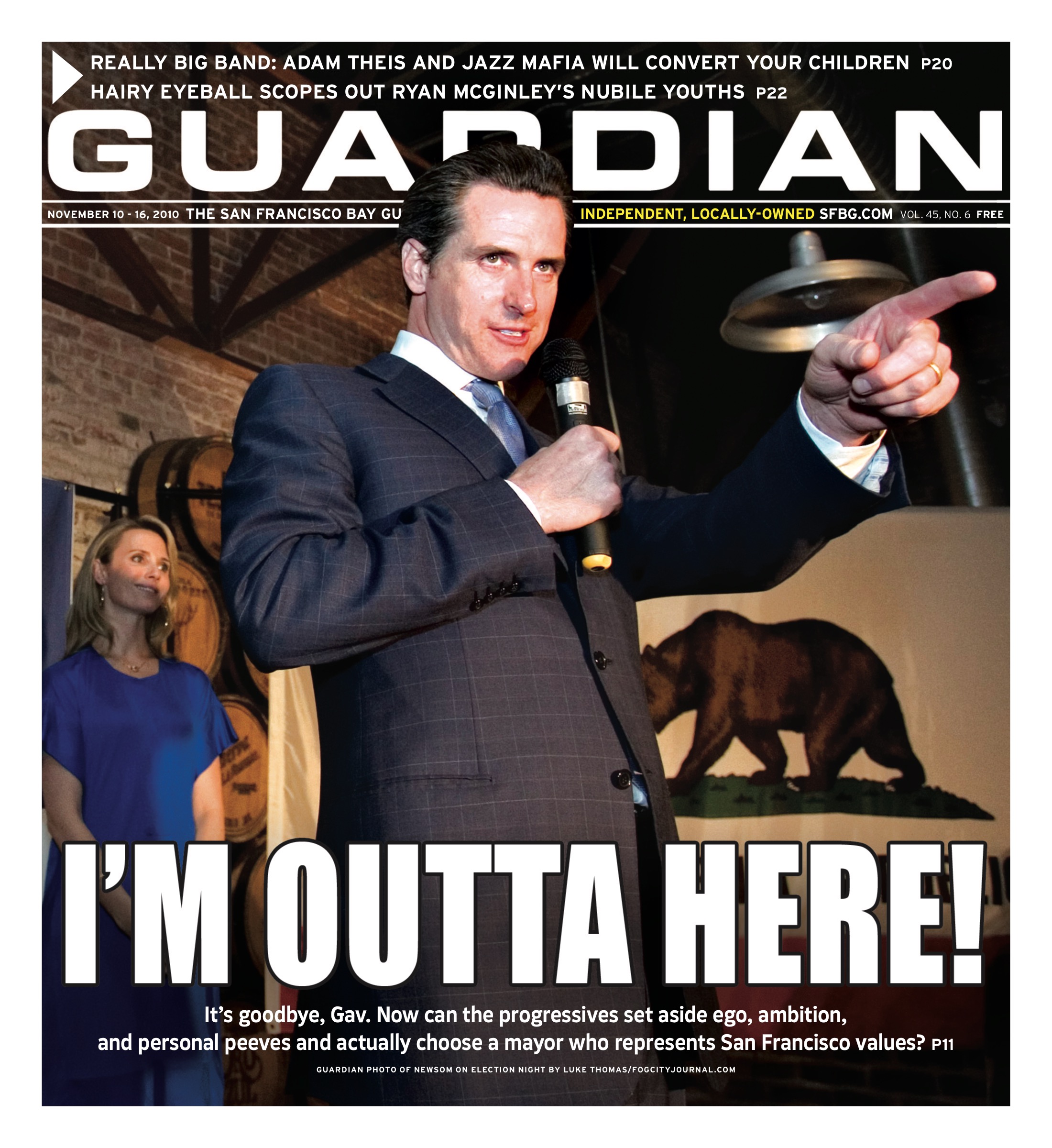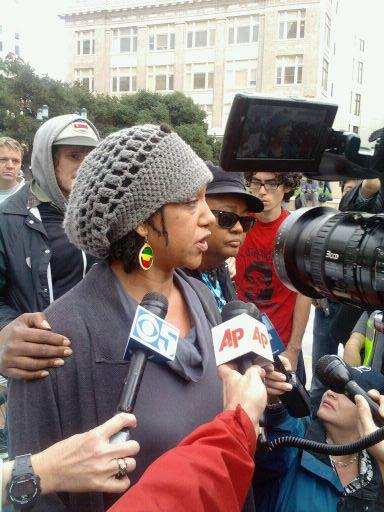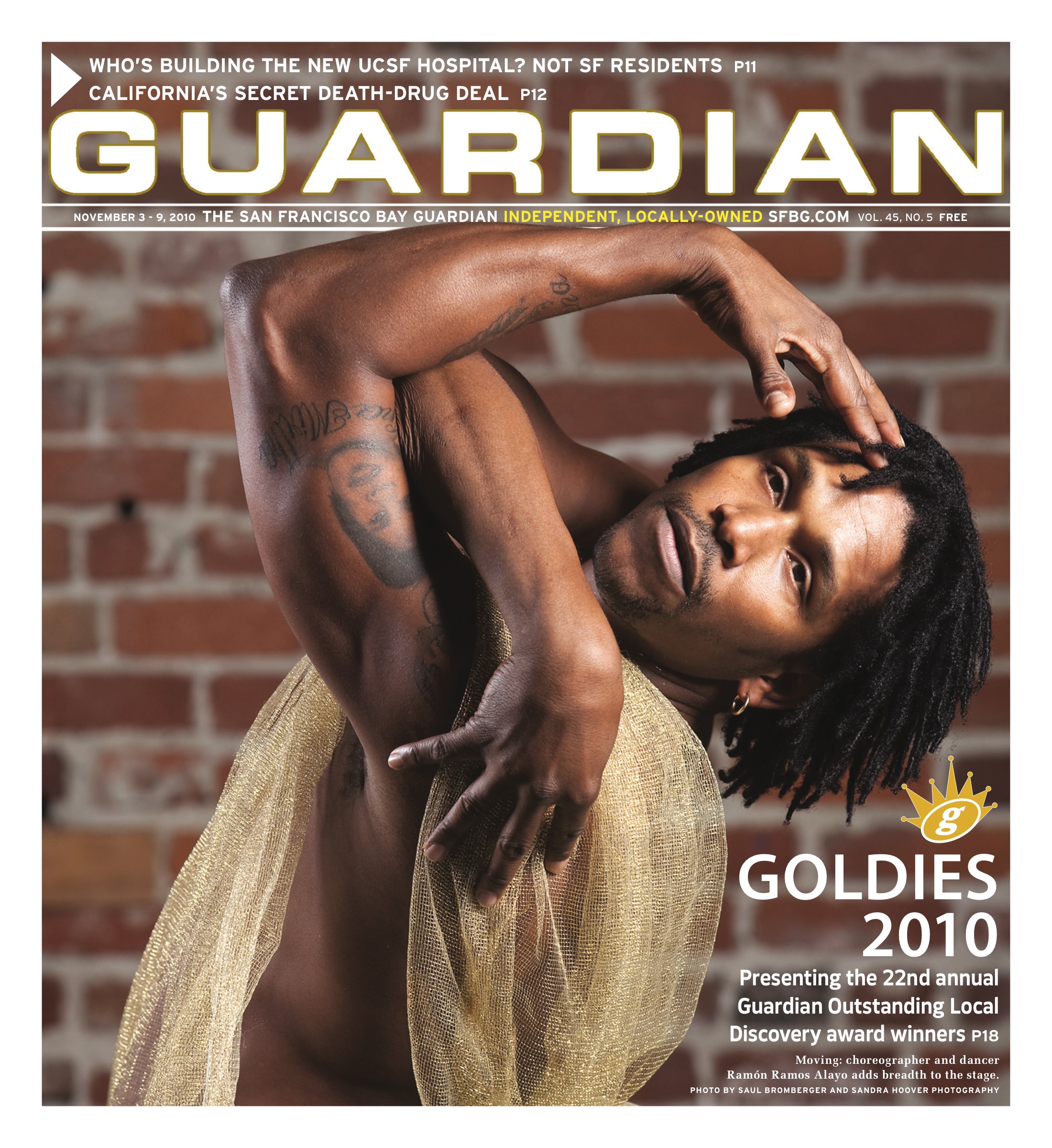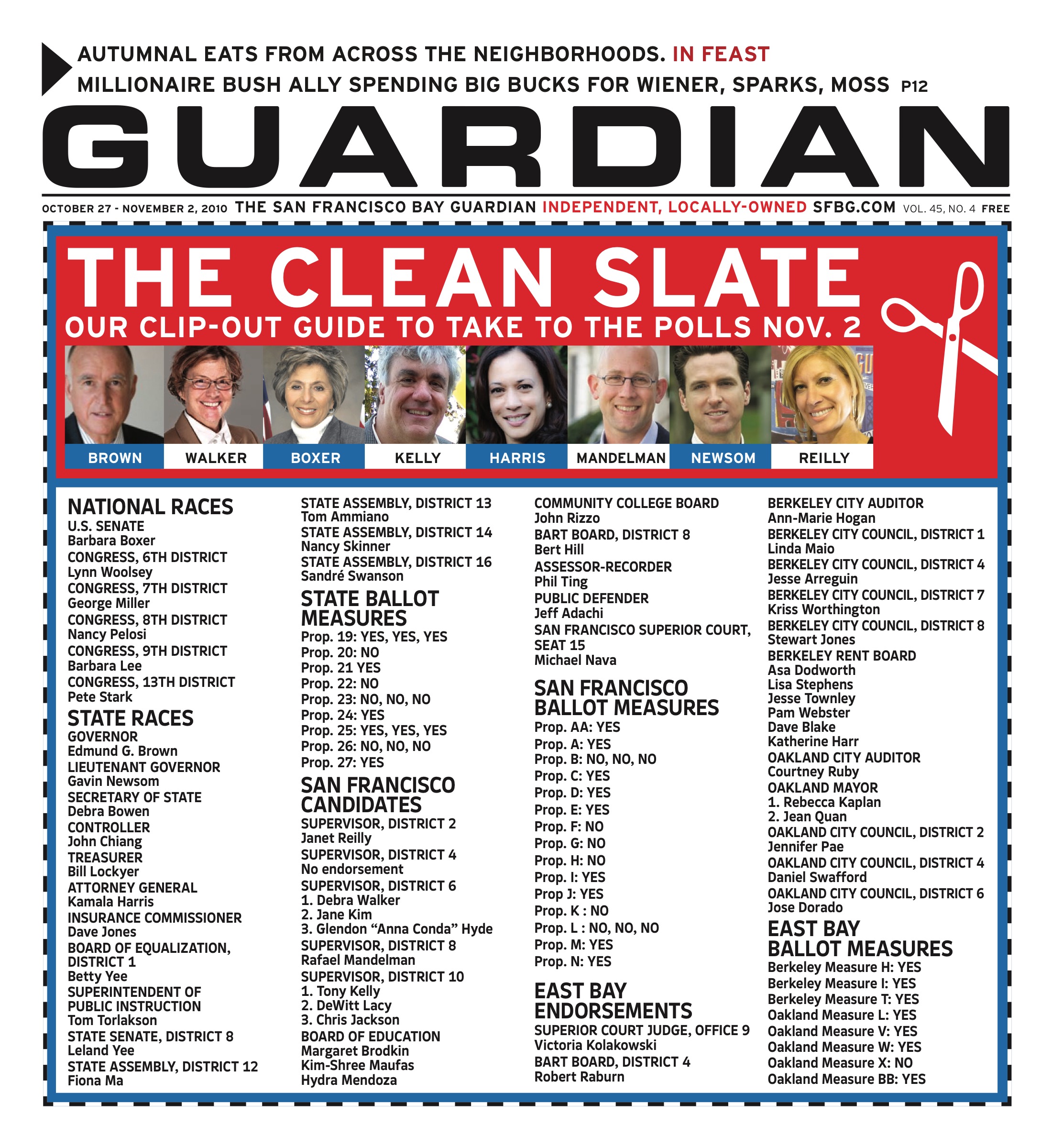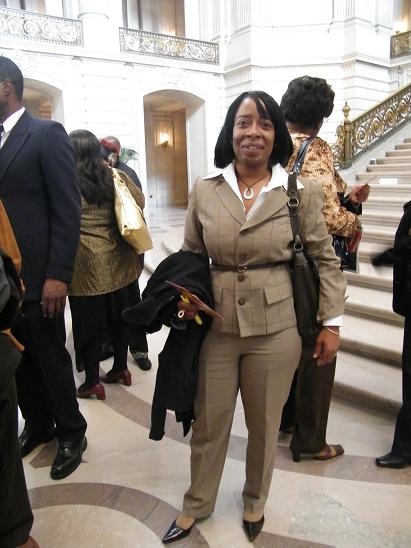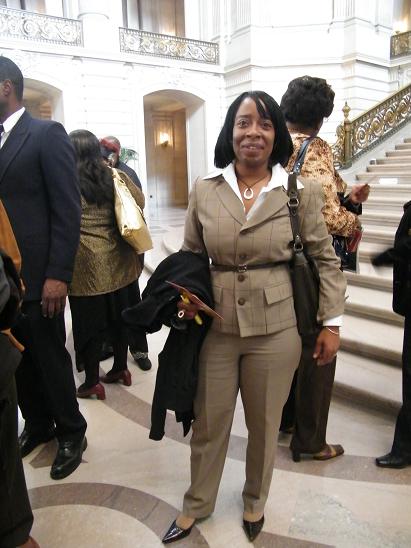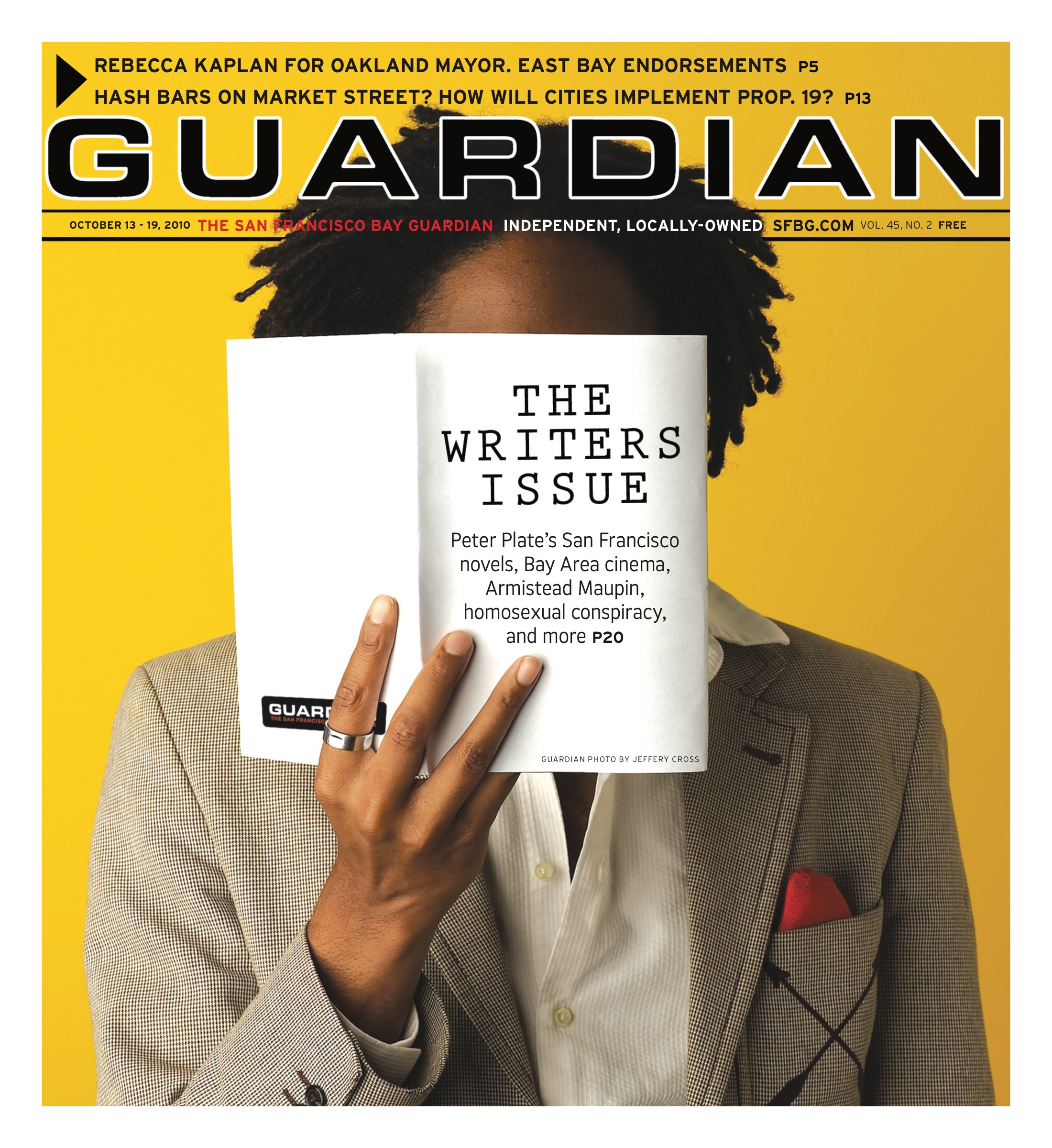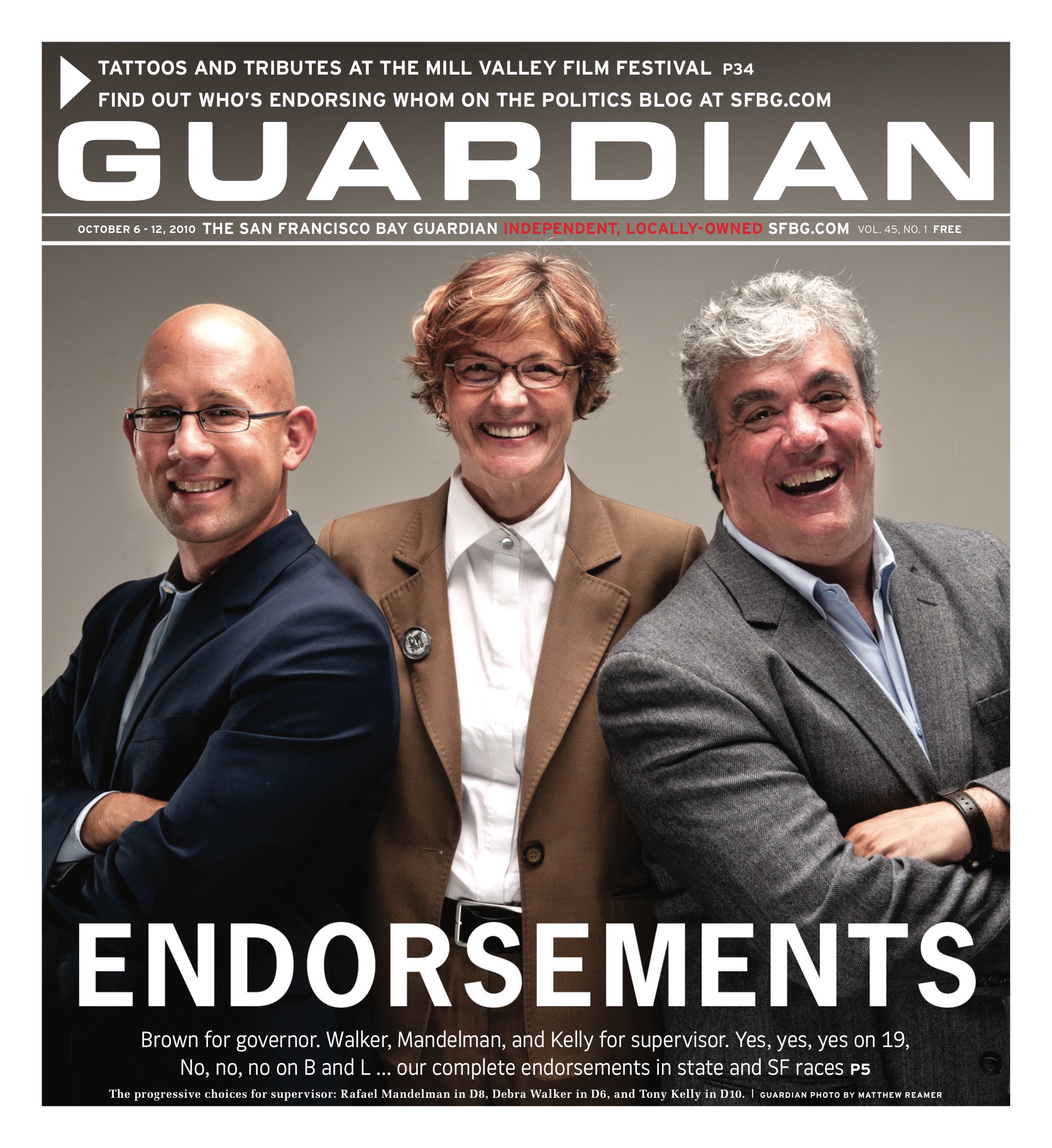Music listings are compiled by Cheryl Eddy. Since club life is unpredictable, it’s a good idea to call ahead to confirm bookings and hours. Prices are listed when provided to us. Submit items for the listings at listings@sfbg.com. For further information on how to submit items for the listings, see Picks.
WEDNESDAY 15
ROCK/BLUES/HIP-HOP
Will Billy Rite Spot Café, 2099 Folsom, SF; www.ritespotcafe.net. 9pm, free.
Black Crowes Fillmore. 8pm, $60.
Blammos, Young n’ Tender, Brown Dwarf El Rio. 8pm, $5.
*Buzzov-en, Brainoil, Neurotoxicity, No Statik, K. Lloyd DNA Lounge. 8pm, $16.
Del the Funky Homosapien Yoshi’s San Francisco. 8pm, $30.
Dregs One and Equipto, Z-Man, L*Roneous, Spank Pops, DJ Beats Me, DJ Chill Elbo Room. 9pm, $10.
John Grant, Jessica Pratt Swedish American Hall (upstairs from Café Du Nord). 8pm, $13-15.
Grouch, Brother Ali, Eligh, Los Rakas Independent. 8pm, $22.
Bob Margolin Biscuits and Blues. 8 and 10pm, $20.
Montra, Lens, Greg Ashley Knockout. 8:30pm, $7.
Kenseth Thibideau, Moholy-Nagy, Radius Hemlock Tavern. 9pm, $6.
DANCE CLUBS
“Babes in Toyland: A Christmas Cabaret” Bottom of the Hill. 9pm, $12. With DJ KidHack.
Booty Call Q-Bar, 456 Castro, SF; www.bootycallwednesdays.com. 9pm. Juanita Moore hosts this dance party, featuring DJ Robot Hustle.
Breezin Koko Cocktails, 1060 Geary, SF; (415) 885-4788. 9:30pm, free. With DJs Amy A and Brynnie Mac spinning yacht rock od smooth 70s.
Cannonball Beauty Bar. 10pm, free. Rock, indie, and nu-disco with DJ White Mike.
Hands Down! Bar on Church. 9pm, free. With DJs Claksaarb, Mykill, and guests spinning indie, electro, house, and bangers.
Jam Fresh Wednesdays Vessel, 85 Campton, SF; (415) 433-8585. 9:30pm, free. With DJs Slick D, Chris Clouse, Rich Era, Don Lynch, and more spinning top40, mashups, hip hop, and remixes. Mary-Go-Round Lookout, 3600 16th St, SF; (415) 431-0306. 10pm, $5. A weekly drag show with hosts Cookie Dough, Pollo Del Mar, and Suppositori Spelling.
Red Wine Social Triple Crown. 5:30-9:30pm, free. DJ TophOne and guests spin outernational funk and get drunk.
Respect Wednesdays End Up. 10pm, $5. Rotating DJs Daddy Rolo, Young Fyah, Irie Dole, I-Vier, Sake One, Serg, and more spinning reggae, dancehall, roots, lovers rock, and mash ups.
Synchronize Il Pirata, 2007 16th St, SF; (415) 626-2626. 10pm, free. Psychedelic dance music with DJs Helios, Gatto Matto, Psy Lotus, Intergalactoid, and guests.
THURSDAY 16
ROCK/BLUES/HIP-HOP
Bang Data, Manicato, Dogman Joe, La Gente, Surreal Mezzanine. 9pm, $15.
Sara Bareilles, Raining Jane Warfield. 8pm, $27.50-37.
Del the Funky Homosapien Yoshi’s San Francisco. 8pm, $30.
Frail, Music for Animals, Fans of Jimmy Century, Return to Mono, DJ Eli Slim’s. 8pm, $13.
Hank IV, Dead Meat, Civil War Rust Thee Parkside. 9pm, $8.
Lydia and the Projects, Andre Thierry and Zydeco Magic Knockout. 9:30pm, $7.
Rolando Morales Biscuits and Blues. 8 and 10pm, $15.
*Om, Lichens, Barn Owl, DJ Britt Govea Independent. 8pm, $16.
Picture Atlantic, Ghost and the City, Stomacher Bottom of the Hill. 9pm, $10.
Puce Moment, Bronze, Sam Flax Keener and Higher Color, Lair Eagle Tavern. 9pm, $5.
Adam Schlesinger and Mike Viola, Corner Laughers Café Du Nord. 9pm, $20.
Screamin’ Yeehaws, Flexx Bronco Hemlock Tavern. 9pm, free.
Sweet Honey in the Rock Palace of Fine Arts Theatre, 3301 Lyon, SF; www.palaceoffinearts.org. 8pm, $25-100.
JAZZ/NEW MUSIC
Dime Store Dandy Rite Spot Café, 2099 Folsom, SF; www.ritespotcafe.net. 9pm, free.
Gentleman Band Revolution Café, 3248 22nd St, SF; (415) 642-0474. 8:45pm, free.
Natalie Lyons Socha Café, 3235 Mission, SF; (415) 643-6848. 8pm, free.
FOLK/WORLD/COUNTRY
JimBo Trout and the Fishpeople Atlas Café. 8-10pm, free.
Shut Ins, Misisipi Rider Night Time Honkey Tonk Band Amnesia. 9pm, $5.
Tanaóra Coda. 9pm, $10.
DANCE CLUBS
Afrolicious Elbo Room. 9:30pm, $10. DJs Pleasuremaker and Señor Oz spin Afrobeat, tropicália, electro, samba, and funk.
Caribbean Connection Little Baobab, 3388 19th St, SF; (415) 643-3558. 10pm, $3. DJ Stevie B and guests spin reggae, soca, zouk, reggaetón, and more.
Club Jammies Edinburgh Castle. 10pm, free. DJs EBERrad and White Mice spinning reggae, punk, dub, and post punk.
Dirty Dishes Lookout, 3600 16th St., SF; (415) 431-0306. 9pm, $10. With food carts and DJs B-Haul, Gordon Gartrell, and Special K spinning indie electro, dirty house, and future bass.
Drop the Pressure Underground SF. 6-10pm, free. Electro, house, and datafunk highlight this weekly happy hour.
Good Foot Som., 2925 16th St, SF; (415) 558-8521. 10pm, free. With DJs spinning R&B, Hip hop, classics, and soul.
Guilty Pleasures Gestalt, 3159 16th St, SF; (415) 560-0137. 9:30pm, free. DJ TophZilla, Rob Metal, DJ Stef, and Disco-D spin punk, metal, electro-funk, and 80s.
Jivin’ Dirty Disco Butter, 354 11th St., SF; (415) 863-5964. 8pm, free. With DJs spinning disco, funk, and classics.
Koko Puffs Koko Cocktails, 1060 Geary, SF; (415) 885-4788. 10pm, free. Dubby roots reggae and Jamaican funk from rotating DJs.
Mestiza Bollywood Café, 3376 19th St, SF; (415) 970-0362. 10pm, free. Showcasing progressive Latin and global beats with DJ Juan Data.
Nightvision Harlot, 46 Minna, SF; (415) 777-1077. 9:30pm, $10. DJs Danny Daze, Franky Boissy, and more spinning house, electro, hip hop, funk, and more.
Peaches Skylark, 10pm, free. With an all female DJ line up featuring Deeandroid, Lady Fingaz, That Girl, and Umami spinning hip hop.
Popscene 330 Ritch. 10pm. With MNDR.
FRIDAY 17
ROCK/BLUES/HIP-HOP
Agent Ribbons, Social Studies, Amores Vigilantes Buritt Room at Crescent Hotel, 417 Stockton, SF; (415) 400-0500. 9pm, free.
Black Crowes Fillmore. 9pm, $60.
Curtis Bumpy Coda. 7pm, $10.
Devin the Dude, Ise Lyfe Mezzanine. 9pm, $25.
*Giant Squid, Bottom, Hazzard’s Cure Thee Parkside. 9pm, $8.
Killing Joke, Lumerians Regency Ballroom. 9pm, $28.
“Hut at the Hut X” Independent. 9pm, $25. Benefit for the Blue Bear School of Music and D.A. Taylor Charitable Foundation.
Mighty Mo Rodgers Biscuits and Blues. 8 and 10pm, $20.
Mother Hips, Blank Tapes, Neal Casal Great American Music Hall. 9pm, $20.
Peaches with Chilly Gonzales Herbst Theatre, 401 Van Ness, SF; www.ticketmaster.com. 8pm, $20. Performing Peaches Christ Superstar.
San Cha with DJ Moxy, Violent Vickie, Valient Steed Brainwash, 1122 Folsom, SF; www.brainwash.com. 8pm, free.
Silian Rail, Summer Darling, Honeycomb Hemlock Tavern. 9:30pm, $7.
Sweet Honey in the Rock Palace of Fine Arts Theatre, 3301 Lyon, SF; www.palaceoffinearts.org. 8pm, $25-100.
Those Darn Accordions Red Devil Lounge. 7:30pm, $10.
“Vandals Christmas Formal” Slim’s. 9pm, $16. With Assorted Jellybeans and Goodbye Gadget.
JAZZ/NEW MUSIC
Emily Anne’s Delights Revolution Café, 3248 22nd St, SF; (415) 642-0474. 8:45pm, free.
Equinox Trio Rite Spot Café, 2099 Folsom, SF; www.ritespotcafe.net. 9pm, free.
Amber Gougis Socha Café, 3235 Mission, SF; (415) 643-6848. 8pm, free.
Hiroshima Holiday Show Yoshi’s San Francisco. 8 and 10pm, $22-28.
FOLK/WORLD/COUNTRY
Brass Menazeri, DJ Zeljko, Kef Bottom of the Hill. 10pm, $12.
Savannah Blue, Bay Island Ramblers Plough and Stars. 9pm, $6-10.
DANCE CLUBS
Alcoholocaust Presents Riptide Tavern. 9pm, free. DJ What’s His Fuck spins old school punk rock and other gems.
Anon Salon Alchemistletoe Holiday Party 103 Harriet, SF; www.1015.com. 9pm, $15-20. World fusion.
Dirty Rotten Dance Party Madrone Art Bar. 9pm, $5. With DJs Morale, Kap10 Harris, and Shane King spinning electro, bootybass, crunk, swampy breaks, hyphy, rap, and party classics.
Eclectic Method, Justin Paul Rickshaw Stop. 9pm, $12.
Exhale, Fridays Project One Gallery, 251 Rhode Island, SF; (415) 465-2129. 5pm, $5. Happy hour with art, fine food, and music with Vin Sol, King Most, DJ Centipede, and Shane King.
Fat Stack Fridays Koko Cocktails, 1060 Geary, SF; (415) 885-4788. 10pm, free. With rotating DJs B-Cause, Vinnie Esparza, Mr. Robinson, Toph One, and Slopoke.
Fubar Fridays Butter, 354 11th St., SF; (415) 863-5964. 6pm, $5. With DJs spinning retro mashup remixes.
Good Life Fridays Apartment 24, 440 Broadway, SF; (415) 989-3434. 10pm, $10. With DJ Brian spinning hip hop, mashups, and top 40.
Gurp Fest 2010 Club 6. 9pm, $10. Hip-hop with TOPR and DJ Quest, Trunk Trunk featuring Z-Man, Rec League, and more.
Hot Chocolate Milk. 9pm, $5. With DJs Big Fat Frog, Chardmo, DuseRock, and more spinning old and new school funk.
“Hubba Hubba Revue: Christmas-Hanukkah Spectacular” DNA Lounge. 9pm, $10-15. Burlesque performers with Meshugga Beach Party.
Nickel Bag of Funk Elbo Room. 10pm, $5. Hip-hop with DJs Ant-One, Sean G, and Jah Yzer.
Oldies Night Knockout. 9pm, $2-4. Doo-wop, one-hit wonders, and soul with DJs Primo, Daniel, and Lost Cat.
Rockabilly Fridays Jay N Bee Club, 2736 20th St, SF; (415) 824-4190. 9pm, free. With DJs Rockin’ Raul, Oakie Oran, Sergio Iglesias, and Tanoa “Samoa Boy” spinning 50s and 60s Doo Wop, Rockabilly, Bop, Jive, and more.
Singapore 60s Happy Hour Knockout. 5:30pm, free. DJ Sid Presley spins rare pop, garage, and freakbeat from SE Asia, circa 1964-72.
Some Thing The Stud. 10pm, $7. VivvyAnne Forevermore, Glamamore, and DJ Down-E give you fierce drag shows and afterhours dancing.
Vintage Orson, 508 Fourth St, SF; (415) 777-1508. 5:30-11pm, free. DJ TophOne and guest spin jazzy beats for cocktalians.
SATURDAY 18
ROCK/BLUES/HIP-HOP
Elvin Bishop Biscuits and Blues. 8 and 10pm, $35.
Black Crowes Fillmore. 9pm, $60.
Civil Wars Café Du Nord. 7:30pm, $12-15.
Crux, Addie Liechty El Rio. 6pm, free.
Cyndi Lauper, Ferocious Few Independent. 9pm, $65.
“Monsters of Accordion 2010” Slim’s. 9pm, $16. With Jason Webley, Corn Mo, Renee de la Prade, Petrojvic Blasting Co., and Duckmandu.
Mother Hips, Or the Whale, Conspiracy of Venus Great American Music Hall. 9pm, $20.
Schande, Bam!Bam!, Kera and the Lesbians Hemlock Tavern. 9:30pm, $7.
Soul Revue Revolution Café, 3248 22nd St, SF; (415) 642-0474. 8:45pm, free.
TurbonegrA, Compton SF, Get Dead, Mission Saints Bottom of the Hill. 9pm, $10.
Unauthorized Rolling Stones, Rudy Colombini Band Café Du Nord. 9:30pm, $20.
White Buffalo, Foolproof Four Hotel Utah. 9pm, $12.
“Wizards and Stars: A Book Release Party and Todd Rundgren Tribute” Make-Out Room. 7:30pm, $8. With Scott Miller and friends.
JAZZ/NEW MUSIC
George Cole Quintet Red Poppy Art House. 8pm, $12-15.
Giovenco Project Coda. 7 and 10pm, $5-12.
Hiroshima Holiday Show Yoshi’s San Francisco. 8 and 10pm, $28.
FOLK/WORLD/COUNTRY
Jeff Landau Socha Café, 3235 Mission, SF; (415) 643-6848. 8pm, free.
Octomutt and friends Rite Spot Café, 2099 Folsom, SF; www.ritespotcafe.net. 9pm, free.
DANCE CLUBS
Bootie DNA Lounge. 9pm, $6-12. Mash-ups with BishopeMagnetic, Adrian, and Mysterious D.
Booty Bassment Knockout. 10pm, $5. Hip-hop with DJs Ryan Poulsen and Dimitri Dickenson.
Cock Fight Underground SF. 9pm, $7. Gay locker room antics galore with electro-spinning DJ Earworm, MyKill, and Dcnstrct.
Fire Corner Koko Cocktails, 1060 Geary, SF; (415) 885-4788. 9:30pm, free. Rare and outrageous ska, rocksteady, and reggae vinyl with Revival Sound System and guests.
Fringe Madrone Art Bar. 9pm, $5. With DJs Blondie K and subOctave spinning indie music videos.
Full House Gravity, 3505 Scott, SF; (415) 776-1928. 9pm, $10. With DJs Roost Uno and Pony P spinning dirty hip hop.
HYP Club Eight, 1151 Folsom, SF; www.eightsf.com. 10pm, free. Gay and lesbian hip hop party, featuring DJs spinning the newest in the top 40s hip hop and hyphy.
Non Stop Bhangra Rickshaw Stop. 9pm, $15. Bhangra DJs and live dhol players.
Prince vs. Michael Madrone Art Bar. 8pm, $5. With DJs Dave Paul and Jeff Harris battling it out on the turntables with album cuts, remixes, rare tracks, and classics.
Rock City Butter, 354 11th St., SF; (415) 863-5964. 6pm, $5 after 10pm. With DJs spinning party rock.
Saturday Night Soul Party Elbo Room. 10pm, $10. Soul with DJs Lucky, Phengren Oswald, and Paul Paul.
Spirit Fingers Sessions 330 Ritch. 9pm, free. With DJ Morse Code and live guest performances.
SUNDAY 19
ROCK/BLUES/HIP-HOP
Black Crowes Fillmore. 8pm, $60.
Colossal Yes, Coconut Rite Spot Café, 2099 Folsom, SF; www.ritespotcafe.net. 8pm, free.
Lloyd Gregory Biscuits and Blues. 8 and 10pm, $15.
It’s Radiant Light Knockout. 9pm.
Pleasure Kills, Shangorillas, Paper Bags Hemlock Tavern. 9pm, $6.
JAZZ/NEW MUSIC
Hiroshima Holiday Show Yoshi’s San Francisco. 5 and 7pm, $5-28.
Kenny Washington, Larry Vuckovich, Jeff Chambers Bliss Bar, 4026 24th St, SF; (415) 826-6200. 4:30pm, $10.
FOLK/WORLD/COUNTRY
Flashes of Light Revolution Café, 3248 22nd St, SF; (415) 642-0474. 8:45pm, free.
Kitchen Fire, Silver Threads, Patsy-Chords Thee Parkside. 4pm, free.
DANCE CLUBS
Call In Sick Skylark. 9pm, free. DJs Animal and I Will spin danceable hip-hop.
DiscoFunk Mashups Cat Club. 10pm, free. House and 70’s music.
Dub Mission Elbo Room. 9pm, $7. Dub, dubstep, roots, and dancehall with Maga Bo, DJ Sep, and Maneesh the Twister.
Gloss Sundays Trigger, 2344 Market, SF; (415) 551-CLUB. 7pm. With DJ Hawthorne spinning house, funk, soul, retro, and disco.
Honey Soundsystem Paradise Lounge. 8pm-2am. “Dance floor for dancers – sound system for lovers.” Got that?
Kick It Bar on Church. 9pm. Hip-hop with DJ Zax.
Pachanga! Coda. 7pm, $10. Salsa with Conjunto Karabali.
Religion Bar on Church. 3pm. With DJ Nikita.
Swing Out Sundays Rock-It Room. 7pm, free (dance lessons $15). DJ BeBop Burnie spins 20s through 50s swing, jive, and more.
MONDAY 20
ROCK/BLUES/HIP-HOP
Michael Burns Rite Spot Café, 2099 Folsom, SF; www.ritespotcafe.net. 9pm, free.
Halsted, High Pilots, Poor Bailey Rickshaw Stop. 8pm, $10.
Billy Idol Fillmore. 8pm, $59.50.
“Smile! Christmas Extravaganza” Knockout. 9pm, $7. With Bart Davenport, Young Elders, Sean Smith, and more.
Thee Swank Bastards Elbo Room. 9pm, $7.
DANCE CLUBS
Black Gold Koko Cocktails, 1060 Geary, SF; (415) 885-4788. 10pm-2am, free. Senator Soul spins Detroit soul, Motown, New Orleans R&B, and more — all on 45.
Death Guild DNA Lounge. 9:30pm, $3-5. Gothic, industrial, and synthpop with Joe Radio, Decay, and Melting Girl.
Krazy Mondays Beauty Bar. 10pm, free. With DJs Ant-1, $ir-Tipp, Ruby Red I, Lo, and Gelo spinning hip hop.
M.O.M. Madrone Art Bar. 6pm, free. With DJ Gordo Cabeza and guests playing all Motown every Monday.
Manic Mondays Bar on Church. 9pm. Drink 80-cent cosmos with Djs Mark Andrus and Dangerous Dan.
Musik for Your Teeth Revolution Café, 3248 22nd St., SF; (415) 642-0474. 5pm, free. Soul cookin’ happy hour tunes with DJ Antonino Musco.
Network Mondays Azul Lounge, One Tillman Pl, SF; www.inhousetalent.com. 9pm, $5. Hip-hop, R&B, and spoken word open mic, plus featured performers.
Skylarking Skylark. 10pm, free. With resident DJs I & I Vibration, Beatnok, and Mr. Lucky and weekly guest DJs.
TUESDAY 21
ROCK/BLUES/HIP-HOP
Fat Tuesday Band Biscuits and Blues. 8 and 10pm, $15.
Billy Idol Fillmore. 8pm, $59.50.
Struts, Karina Denike, Bang Bottom of the Hill. 9pm, $10.
Tricky Independent. 9pm, $30.
Waterlaso, North Fork, Bleached Palms, Night Genes Hemlock Tavern. 8pm, $6.
DANCE CLUBS
Alcoholocaust Presents Argus Lounge. 9pm, free. With DJ D-Runk and DJ What’s His Fuck.
Brazilian Wax Elbo Room. 9pm, $7. With Forro Brazuca, Tropicali, and DJs Carioca and P-Shot.
Eclectic Company Skylark, 9pm, free. DJs Tones and Jaybee spin old school hip hop, bass, dub, glitch, and electro.
Extra Classic DJ Night Little Baobab, 3388 19th St, SF; www.bissipbaobab.com. 10pm. Dub, roots, rockers, and reggae from the 60s, 70s, and 80s.
Rock Out Karaoke! Amnesia. 7:30pm. With Glenny Kravitz.
Share the Love Trigger, 2344 Market, SF; (415) 551-CLUB. 5pm, free. With DJ Pam Hubbuck spinning house.

